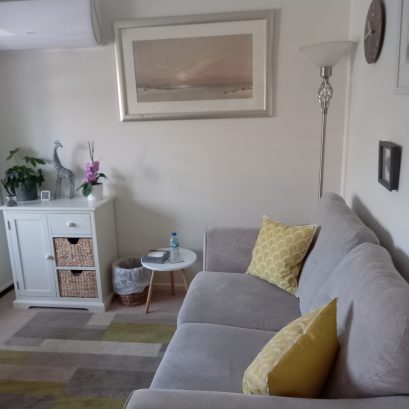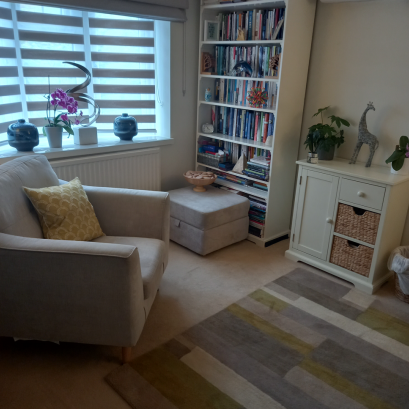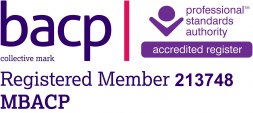Welcome to Counselling for Changes
A confidential space to explore the thoughts, feelings and challenges in your life
Welcome to Counselling for Change
My name is Sue Bird and I am an accredited psychotherapist providing counselling and therapy in the Buckingham area and within easy reach of Milton Keynes, Brackley and Bicester
Do you get frustrated by knowing what you would like to change, but don't know where to start. When "if I just think positive" doesn't work. Maybe you are in a cycle of anxiety that feels like it's taking over your world.
Do you feel alone with those thoughts that go round in your head?
It can be hard to share them with those near to us. Maybe you worry that you will burden them, no one will understand or that you won't be heard.
I passionately believe that if we understand why we think and behave the way we do, then we can change how we view ourselves, respond differently to that inner critic that traps us in the shoulds and oughts.
Therapy offers the chance to share the times that have left you stuck about what to do next. It gives you the chance to experience a place that is confidential, non judgemental and to explore your unique life experience with gentle curiosity.
By nature we need people around us but when being with others is difficult and in some cases harmful, we can lose confidence and self esteem. As a Trauma Informed therapist I have worked with clients who have experienced emotional abuse and neglect and the unseen wounds that leaves within.
It’s important to choose a therapist you feel comfortable working with, so I offer a free initial 30 minute session to help you decide if I am the right counsellor for you. This will give you the opportunity to discuss your reasons for coming, any outcomes you’re hoping to achieve and any questions you have. The sessions are time for you, that could be to work around a particular goal you have or to look deeper into your situation. The choice is always yours.
Speak in Confidence
Counselling takes place in a safe space, where you can meet with someone who will listen with sensitivity and empathy - and without judgement. In the therapy space thoughts and feelings can be expressed freely and in confidence.
A problem shared...
Trouble with a relationship; anxiety or panic attacks; mood swings or depression - many people face difficulties in their everyday lives that can be hard to get on top of. Counselling gives us a set of tools we can use to help gain a better understanding of what’s causing these problems - and how you can move towards managing or resolving them.
Make better, healthier new choices
Working together I can help you gain greater insight into the difficulties you are facing, help you understand why you act or react to them the way you do, and see how you can start to make better, heathier choices moving forward.
How can therapy help you?
Therapy offers the chance to share the times that have left you feeling not knowing and confused about what to do next. It gives you the chance to experience a place that is confidential , non judgemental and to explore your unique life experience with gentle curiosity.


What issues can therapy help with?
People come to me for help a wide range of issues. Here are a few of the more common difficulties that can be supported through counselling:
Feelings of stress or anxiety
Panic attacks
Relationship problems
Grief, loss or bereavement
Problems with addiction
Trauma and post-traumatic stress
Abuse
Depression
Problems with confidence or self-esteem
Anger management
Issues relating to Adoption
Difficulties at work or in retirement
Problems with family or school life
Qualifications
I am an Accredited Member of the BACP
CPCAB Level 6 Clinical Supervision
CPCAB Level 5 Advanced Diploma in Psychotherapeutic Counselling
CPCAB Level 4 Diploma in Therapeutic Counselling
CPCAB Level 3 Certificate in Counselling Studies
Certificate in Adoption Support Counselling
My location
I work from a private room in my home in Buckingham.
Availability
Sessions last 60 minutes, usually taking place on a weekly basis and cost £70 per session. I also provide a limited number of spaces for counselling students, contact me to enquire about availability.
Note that if you want to cancel an appointment, I require 24 hours notice; otherwise you will still need to pay for any sessions missed.
I accept payment in cash or bank transfer.
Get in touch
Feel free to contact me if you have any questions about how therapy works, or to arrange an initial assessment appointment. This enables us to discuss the reasons you are thinking of coming to therapy, whether it could be helpful for you and whether I am the right therapist to help.
You can also call me on 07507 911650 if you would prefer to leave a message or speak to me first. I am happy to discuss any queries or questions you may have prior to arranging an initial appointment.
Frequently asked questions
Counselling is usually a good way to help with a current problem; something that can be discussed and - hopefully - resolved within a limited number of sessions. Over a certain number of weeks the understanding of the problem improves and away forward becomes clear. Therapy often describes work that goes a bit deeper, towards more substantial life issues and problems having a deeper effect on the client’s life. Therapy often requires a long-term approach, so the number of sessions can be open-ended.
Which option is most suitable depends on the client and the difficulties they are facing. In some cases counselling works well as an ongoing, longer-term option - or therapy can manage to resolve an issue in just a few sessions.
Everything that is said within the counselling room is private - this is one of the main ways counselling and therapy differ from talking to a friend or relative. Once you are comfortable with the format of weekly sessions and the safe space they provide, you will find the freedom to speak in confidence is of great value.
Note that there are some situations where you may be a risk to yourself or others, and there the law requires that I notify an authority; in these cases I may not be able to keep total confidentiality. Breaking confidentiality is very rare though, and only happens after the person concerned has been informed.
Usually I am asked this question by people who are nervous about entering into counselling, or when they are looking for support in coming to see a therapist. This anxiety is understandable, but a key aspect of therapy is that you should feel free to talk about any issues you feel are important to you. Having someone else with you who can be connected those issues makes this opening-up more difficult, so for this reason I do not see clients accompanied by friends or family.
How long a period of counselling lasts will vary from person to person and depend on the depth of the issues they are facing. For some people a couple of sessions helps to bring their problems into focus, and they feel ready to move forward; other problems may require more of an open-ended approach.
Before we begin any work we will agree on the number of sessions we’ll undertake, and at the end of that number review our progress. As long as we both agree further therapy will be of benefit to you, sessions can continue.
My aim is to offer a first appointment - known as an initial assessment - within 1-2 weeks. Then we would arrange a set number of counselling sessions to take place at the same time every week, that is convenient for you and where I have availabity. How quickly these sessions can begin will depend on the availabity of that free ‘slot’.


